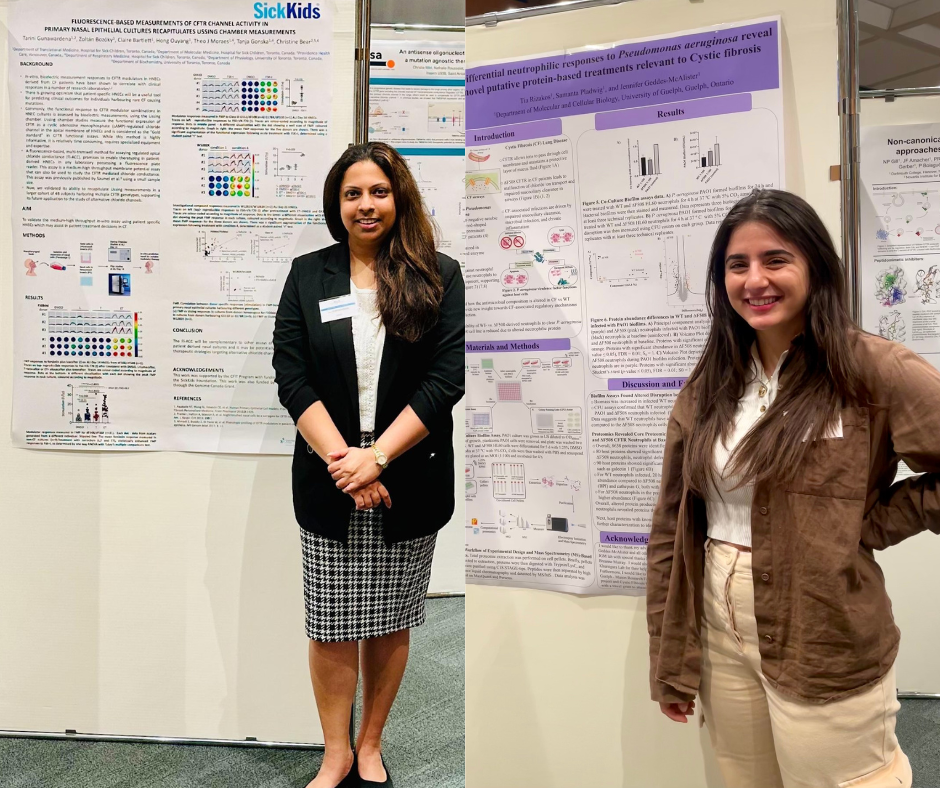Canadian CF researchers head to Croatia

JUNE 21, 2023
Travel grants to up-and-coming researchers aim to grow a vibrant research community
The world of cystic fibrosis research is fast-paced and full of promise and much of that exciting research is happening right here in Canada.
The community benefits from a vibrant and productive research ecosystem. That means engaging bright young scientists in the complex medical challenges of cystic fibrosis. We aim to inspire them to help solve the community’s most pressing concerns.
That’s why Cystic Fibrosis Canada awarded travel grants to two Canadian CF researchers to attend the European Cystic Fibrosis Society’s Basic Science Conference in Croatia this year.
Tia Rizakos of the University of Guelph and Dr. Tarini Gunawardena of SickKids both presented scientific posters at the conference, and Tia gave an oral presentation as well. At the conference, they had the chance to meet other scientists in the field and learn about research happening elsewhere.
“It was a great opportunity to connect and talk with others about their cystic fibrosis research,” says Tia. “A lot of the talks focused on unpublished research, which was very cool.”
A master’s student at the University of Guelph, Tia studies immune responses. She’s comparing how CF neutrophils, which are important innate immune cells, respond to bacterial biofilms compared to wild-type neutrophils (i.e., those in people without cystic fibrosis).
She wants to know which proteins or enzymes disrupt the growth of biofilm infections. She hopes that one day, these can help treat infections such as P. aeruginosa, which cause so much illness in the CF community.

Meanwhile, at SickKids, as part of Cystic Fibrosis Canada funded research in Dr. Christine Bear’s lab, Dr. Gunawardena tests different CF medications on the cultured nasal cells of people with rare cystic fibrosis mutations. After just a few months, she can tell if a drug is working on the cells in culture. That could indicate whether it might work on the persons who donated the cells.
Dr. Gunawardena’s paper shows that the SickKids fluorescence-based method for studying the rescue of mutated CFTR channel function in nasal cells allows the testing of multiple drugs in several people simultaneously. Dr. Gunawardena hopes that, in time, this method can be transferred to labs around Canada to advance personalized medical decisions nationally.
“Research takes time, but we are getting there,” she reflects. “I hope the cystic fibrosis community will remain energetic and engaged as we work towards improving access to the best therapy for each person.”
